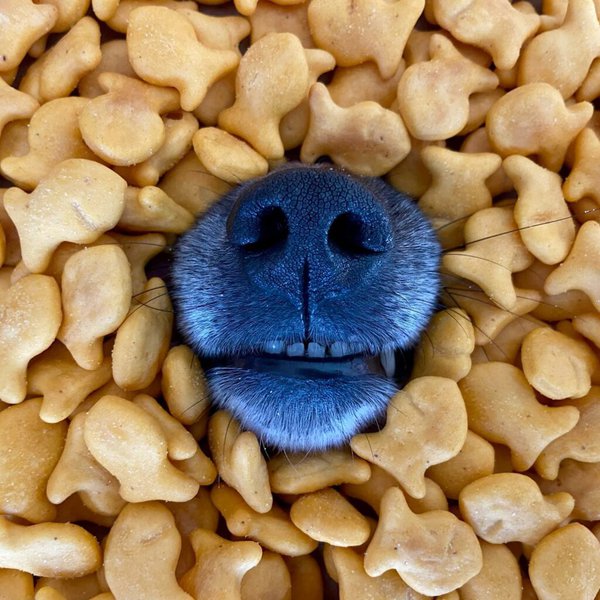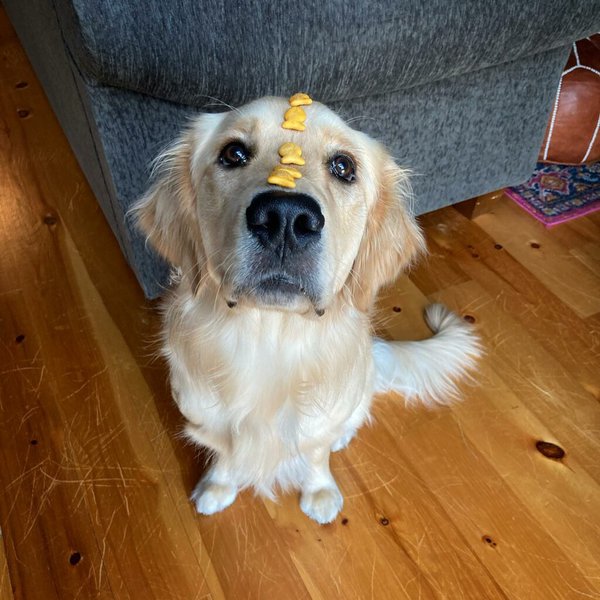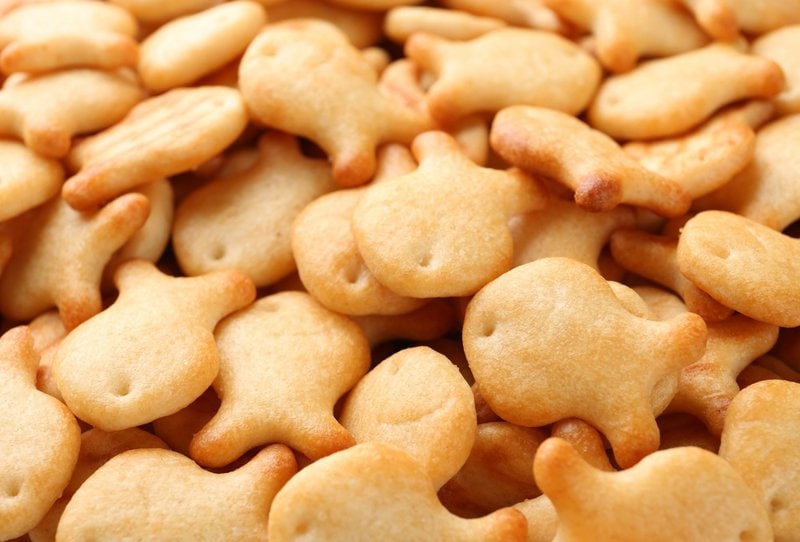Did you know that Goldfish crackers can be served in more ways than one? Aside from eating these childhood staple snacks straight from the bag, Goldfish crackers can be crushed and used as breading for anything fried, or add these to your trail mix for a burst of flavors.
Dogs cannot eat Goldfish crackers. It is because these crackers are laden with ingredients like salt and garlic powder that are not safe for your pooch if consumed in large amounts. What is also important is not to share the Goldfish crackers that you are having with your dog.
Today, we’d talk about these snacks that we all love and why it is a bad idea to share them with your four-legged baby. Should you be alarmed in case your dog has eaten more than the recommended amount of Goldfish crackers? Will your dog get sick? Let’s fish out the answers to these questions now.
Can A Dog Have Goldfish Crackers?

No, Goldfish crackers are not the ideal snack for your dog. First, it’s because of the core ingredients of Goldfish crackers, the spices. Secondly, Goldfish crackers are high in carbohydrates, leading to weight gain and diabetes.
Unsafe Spices
Here are the most common spices used in baking Goldfish crackers:
Salt
Goldfish crackers are often high in salt content. On average, each serving is deemed to contain about 250 mg of sodium.
As a fur parent, are you aware that your dog can get sick by consuming food that has high salt content, like Goldfish crackers? Referred to as salt toxicity, it can lead to excessive thirst and dehydration.
In the worst-case scenario, eating a lot of Goldfish crackers may even result in hypernatremia, a condition where there is a water-salt imbalance.
This is a fatal condition. Aside from excessive thirst and urination, the other signs of hypernatremia to look for are weakness and confusion.
Garlic And Onion Powder
Garlic and onion are two of the seasonings used to enhance the taste of Goldfish crackers. These two ingredients may be safe for you but not for your four-legged babe.
Belonging to the Allium family, garlic and onion both have the thiosulfate component that can damage the red blood cells of your dog, resulting in hemolytic anemia.
Onion powder could prove to be even more fatal than fresh onions. So, if your dog waggingly consumes a bag of Goldfish crackers behind your back, this could result in a serious problem.
Some of the common signs of garlic and onion toxicity are:
- Lethargy
- Pale gums
- Decreased appetite
- Dark-colored urine
- Jaundice
Cheese
What makes Goldfish crackers taste extra special is the cheese. The problem is not all dogs’ tummies are compatible with cheese.
Those who are lactose intolerant may go through bouts of an upset tummy like bloating and diarrhea.
Goldfish Crackers Are High In Carbs
Instead of carbohydrates, protein is the primary dietary component of our dogs’ diet.
Don’t get us wrong. We’re not implying that carbs are bad for your dog. Rather you have to choose well what form of carbs is best for your dog.
Whole oats and bananas are great examples, but the carbs from grains are another story.
Goldfish crackers are made of wheat, a type of grain that converts into sugar. If eaten too many, the effects are weight gain and diabetes.
Not to forget that wheat is not gluten-free. Unfortunately for some dogs that are allergic to gluten, eating Goldfish crackers can result in skin irritation and other health issues.
How Many Goldfish Crackers Can A Dog Eat?

If you’re four-legged babe is persistent, 1 or 2 pieces of Goldfish crackers won’t do much harm.
As discussed above, almost all of the ingredients of Goldfish crackers are not recommended for dogs. So if you can avoid eating these snacks in front of your pooch, the better it is for your dog.
What Do You Do If Your Dog Ate A Lot Of Goldfish Crackers?
If you suspect that your dog has devoured a whole bag of Goldfish crackers, encourage it to drink plenty of water to flush out the excess salt.
If it continues to show signs of vomiting, diarrhea, and excessive panting due to too much salt, it’s best to take your dog to the vet right away.





